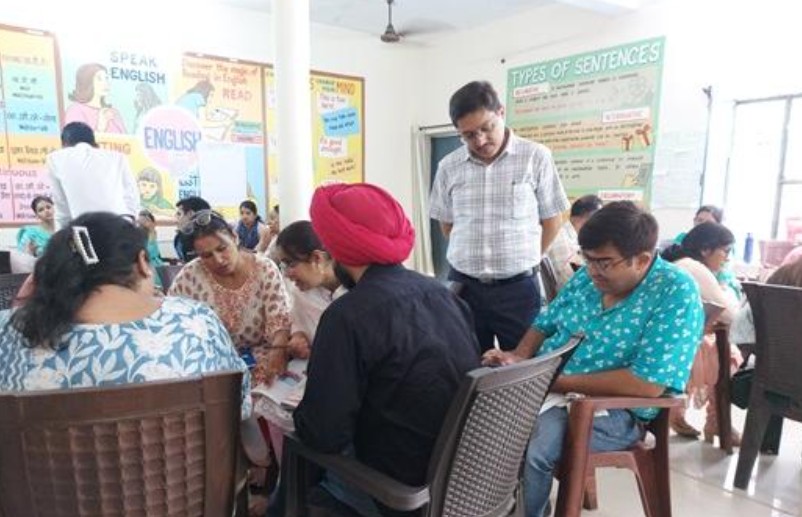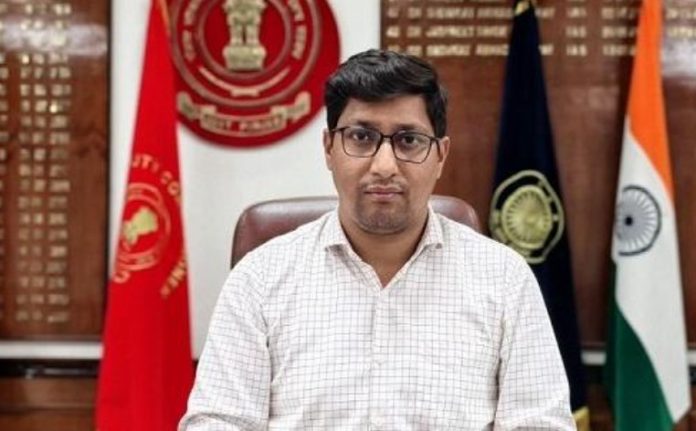In a significant administrative reshuffle aimed at strengthening the education framework of Punjab, Gurinder Singh Sodhi has been appointed as the new Director of Education (Secondary) in the state. The decision, which came as part of a broader move to improve educational governance and bring fresh momentum into the academic administration, has been welcomed by various stakeholders in the education sector.
Gurinder Singh Sodhi, a seasoned bureaucrat with an impressive track record in public administration, assumes this crucial role at a time when Punjab is actively working to revitalize its education system, especially at the secondary level. With mounting concerns over student learning outcomes, infrastructure deficits, and teaching quality, the state government’s choice signals a renewed commitment to tackling the persistent challenges faced by schools across Punjab.
Sodhi’s previous roles in the education department and other key postings within the government have earned him a reputation for being a result-oriented, disciplined, and reform-driven officer. He has often been praised for his hands-on approach to policy execution and his ability to balance bureaucratic responsibilities with a people-centric vision. In his new capacity, he will be responsible for overseeing the administration of secondary education in government and government-aided schools, implementing education policies, ensuring proper utilization of educational funds, improving teacher training programs, and enhancing infrastructure development in schools.
The education sector in Punjab has undergone numerous changes in recent years. While the government has taken steps to upgrade school infrastructure, introduce digital learning, and recruit new teachers, it has also faced criticism for issues such as teacher shortages, disparities in rural and urban education standards, and lack of monitoring in some regions. Sodhi’s appointment is being seen as a strategic move to address these gaps with more efficiency and clarity of purpose.

Gurinder Singh Sodhi is expected to focus on both short-term and long-term goals. In the immediate future, his attention may turn to streamlining academic sessions that have been disrupted due to the pandemic-induced learning gaps. He will also have to work closely with district-level education officers to ensure the implementation of new initiatives such as smart classrooms, blended learning models, and reforms under the National Education Policy (NEP) 2020.
Teachers across Punjab have expressed hope that the new Director of Education (Secondary) will take decisive steps to address long-pending issues such as regularization of contractual staff, timely disbursement of salaries, and clear guidelines for transfers and promotions. Associations representing educators have urged Sodhi to hold periodic consultations with teacher unions to understand grassroots-level problems and to create an inclusive decision-making environment.
One of the key areas where Sodhi’s leadership is anticipated to make a mark is in promoting equity and access in education. There are still a number of students in the state who drop out after completing primary education due to socioeconomic barriers, lack of transport facilities, or academic difficulties. Strengthening secondary education requires not only improving schools but also ensuring that students remain motivated and supported through scholarships, career counseling, and co-curricular programs.
In addition to administrative responsibilities, Sodhi will play a vital role in aligning Punjab’s educational strategies with national and global standards. With increasing focus on technology-driven education and skill-based learning, Punjab’s education department under Sodhi’s guidance may expand partnerships with ed-tech companies, NGOs, and international organizations. Programs such as training students in coding, introducing AI-based curricula, and linking education with employability will likely gain more traction under his leadership.
Moreover, educational experts believe that having someone like Gurinder Singh Sodhi, with his professional background and systematic work ethic, will bring a disciplined and measurable approach to education reforms. His emphasis on data-driven planning and accountability can help track student performance, teacher effectiveness, and policy outcomes in real time, which is essential for meaningful progress.
The government has also laid emphasis on introducing a feedback mechanism from parents, students, and teachers to assess the quality of education delivery at the school level. Sodhi is expected to strengthen these feedback channels and build a responsive system where genuine concerns are addressed promptly, ensuring that governance in education does not remain top-down but evolves into a participatory process.
Another challenge awaiting Sodhi is to ensure that secondary schools are adequately equipped to implement the vocational training components introduced under NEP 2020. With the vision of making students ‘job-ready’ after school, vocational education needs to be strengthened with qualified trainers, lab facilities, and industry tie-ups. Sodhi will need to facilitate inter-departmental coordination with the skill development ministry, private industries, and local entrepreneurs to create meaningful job pathways for students, especially in rural and underdeveloped regions of the state.
The appointment also comes at a time when the Punjab government has promised to raise investments in the education sector as part of its broader development agenda. Budgetary allocations for secondary education, infrastructure development, midday meals, and digital inclusion are set to increase, and Sodhi’s stewardship will be crucial in ensuring that these funds are utilized efficiently and transparently.
In a recent media interaction, senior officials in the Department of School Education expressed their optimism over Sodhi’s appointment. They remarked that his disciplined administrative style and clarity in communication would help establish a more coordinated working culture within the department, leading to faster decision-making and better implementation of government schemes.
It is also expected that under Sodhi’s leadership, monitoring mechanisms for school inspections will be improved to ensure regular evaluations of school functioning. Emphasis will be placed on bringing non-performing schools on par with the rest through academic interventions, mentoring programs, and extra classes for weak students.
As Punjab continues its journey toward educational excellence, the role of the Director of Education (Secondary) becomes not only administrative but visionary. Gurinder Singh Sodhi, with his experience and commitment, is being seen as a promising force to steer this crucial segment of public service.
His success will not only be measured by policy execution but by tangible improvements in learning outcomes, student retention rates, and the overall academic environment across thousands of secondary schools in Punjab. The hope is that through sustained efforts, collaborative strategies, and a people-first approach, Sodhi’s tenure will become a landmark period in the history of Punjab’s education system.


